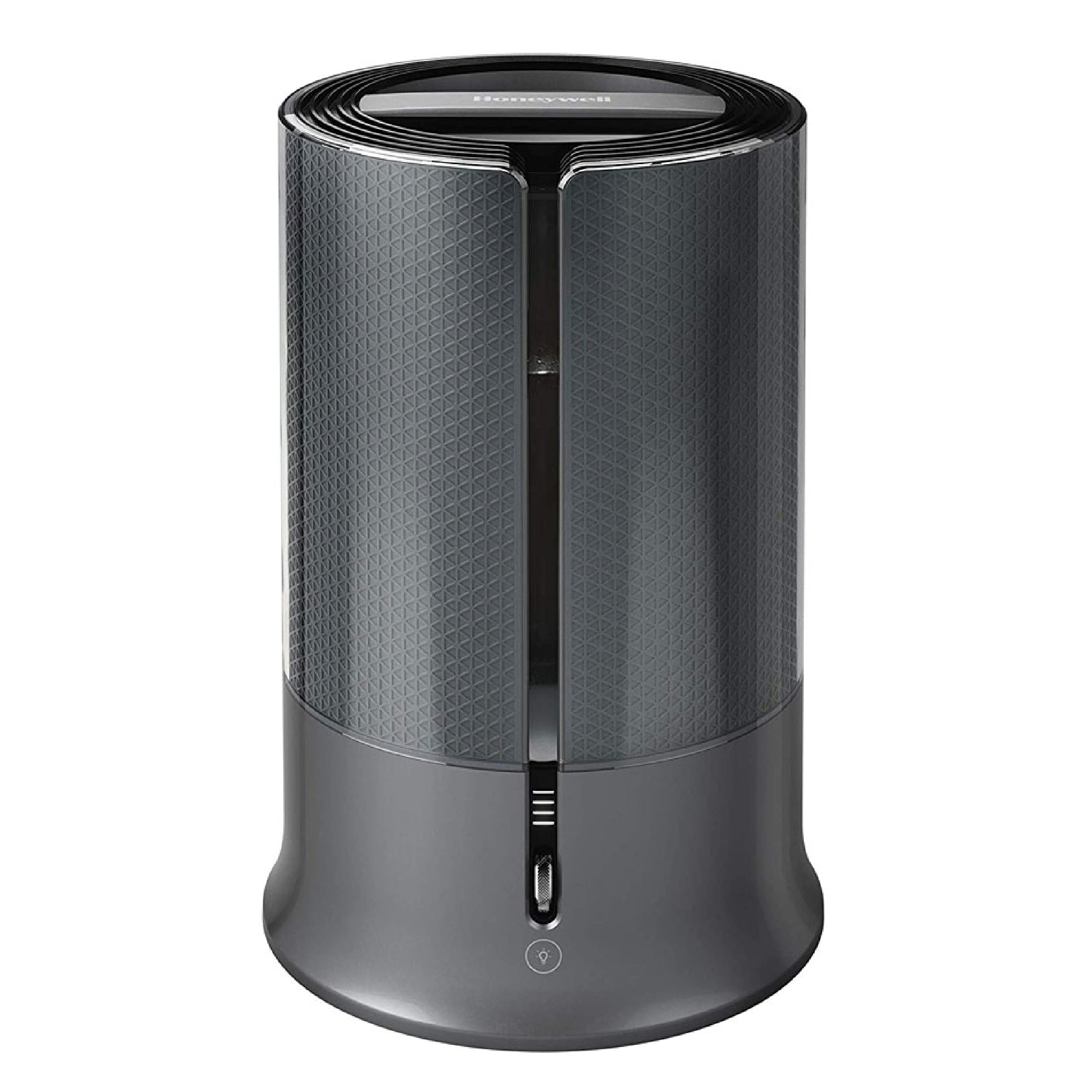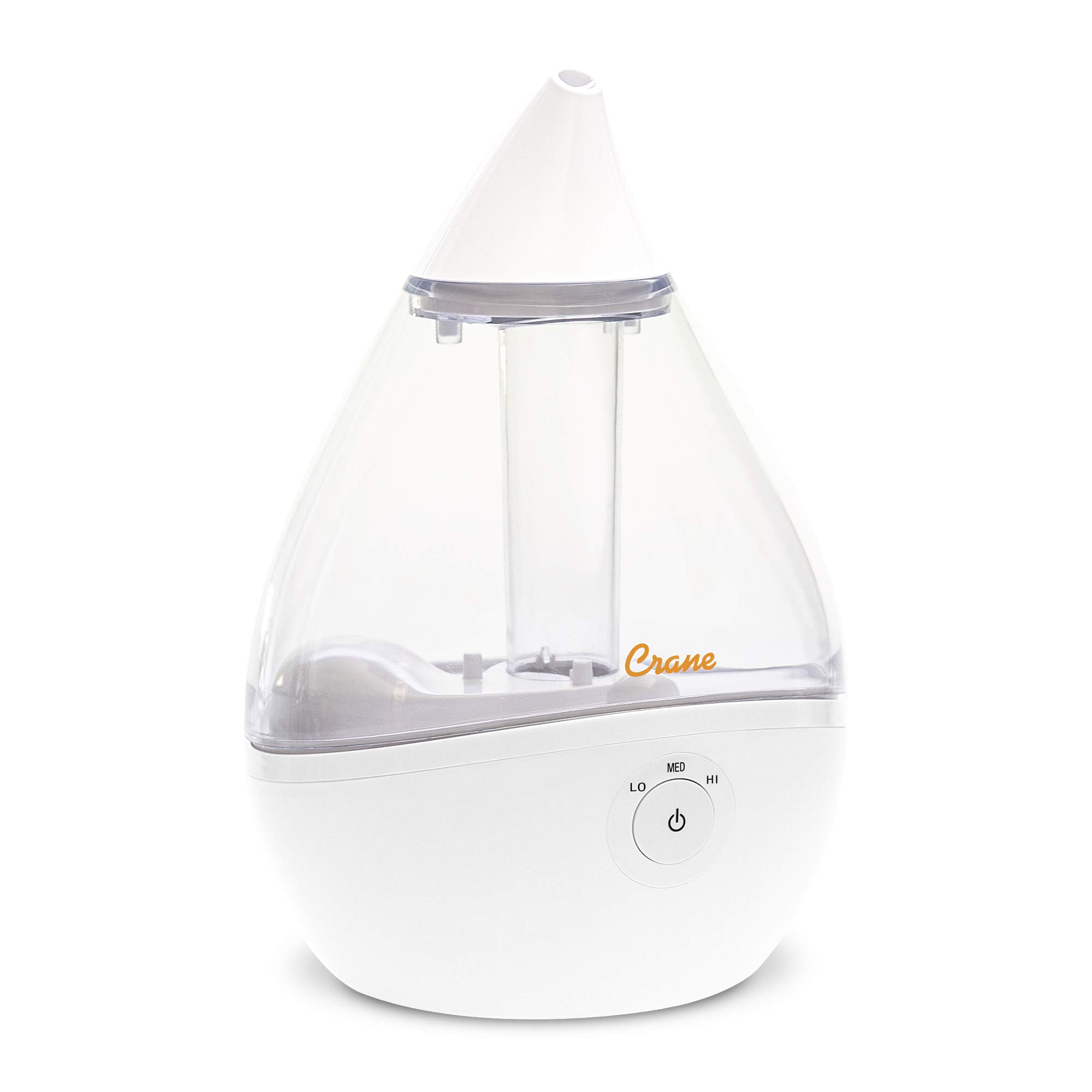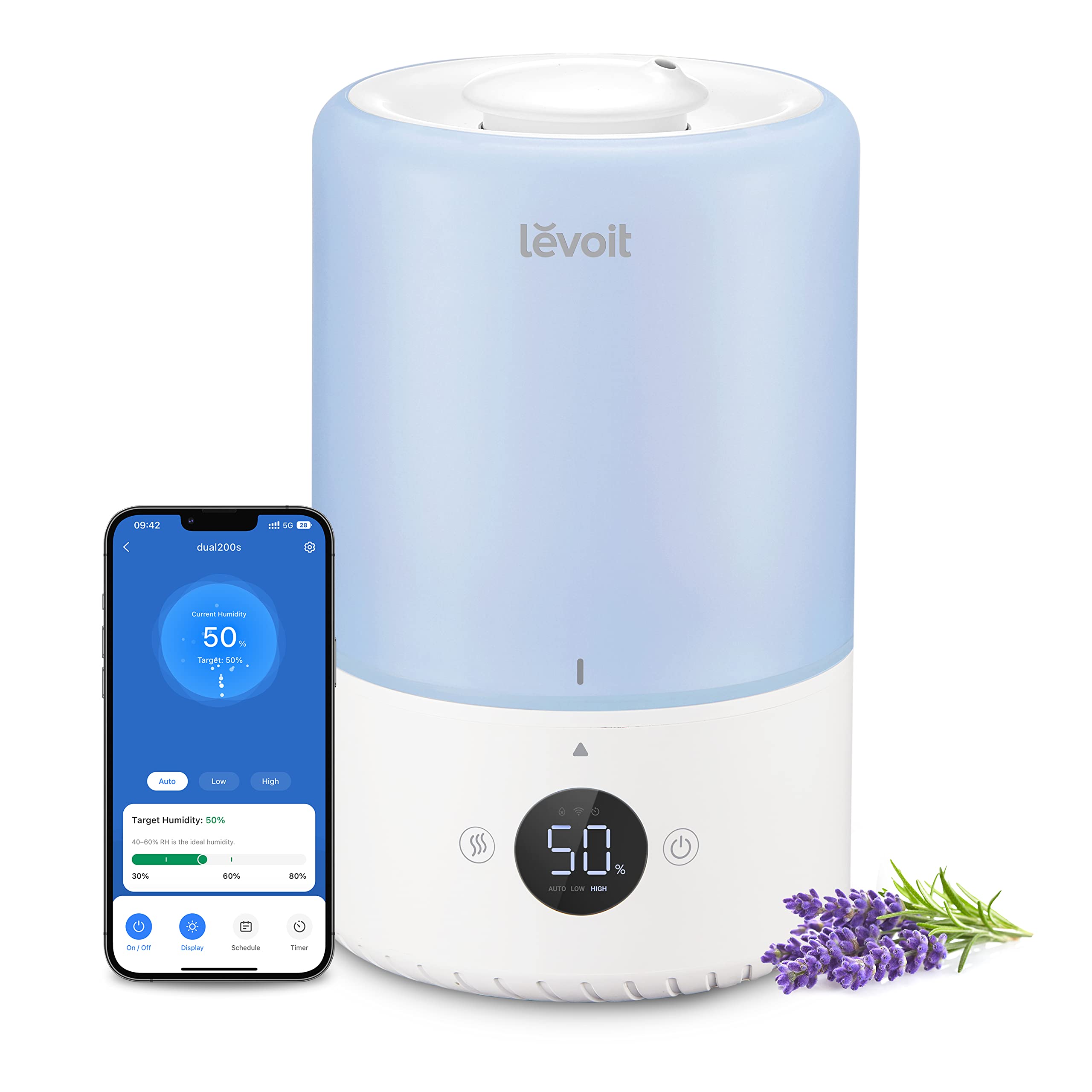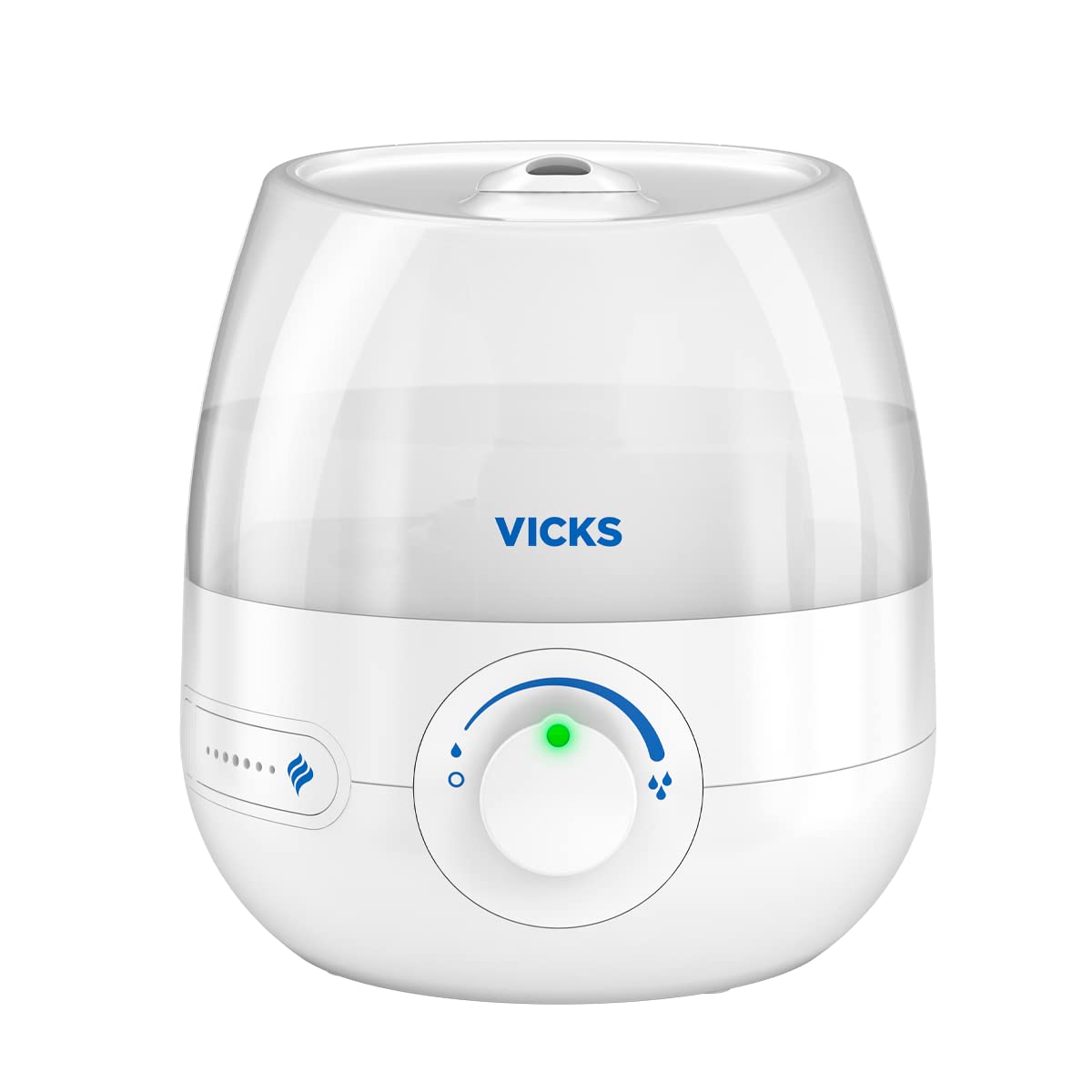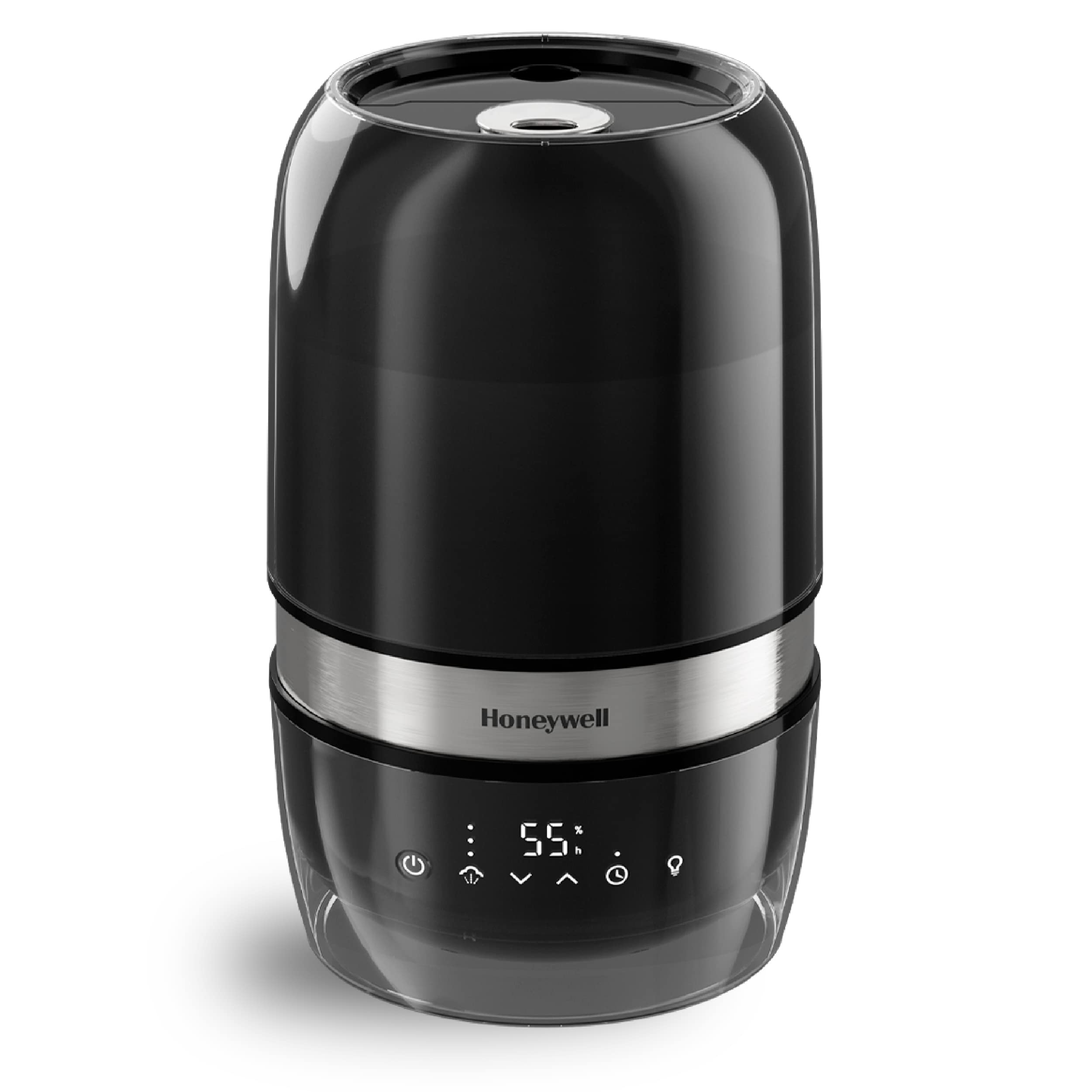Humidifiers
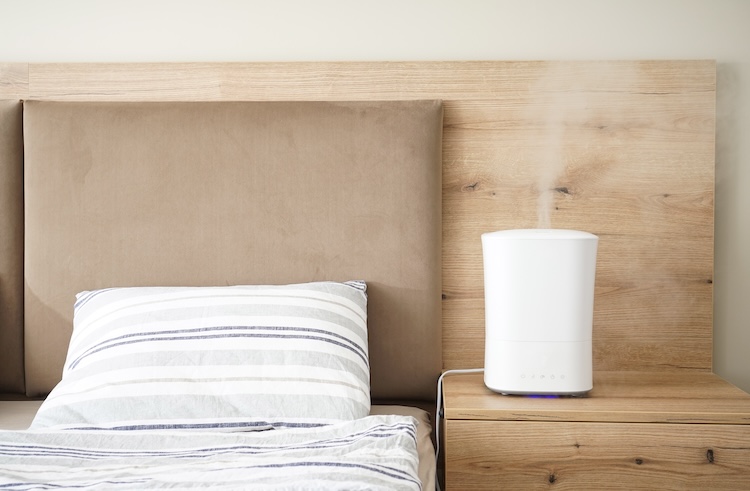
Dry air can disturb your sleep by bothering both your breathing and your eyes. This is particularly the case in dry climates or during cold winter months.
Humidifiers can help. They add moisture to the air, making it more comfortable for you to breathe, and improving your sleep.
See how your sleep quality stacks up.
Start here to get a baseline on how well you sleep and where you can improve.
Low Humidity and Sleep
If you’re congested, have dry nasal passages, or a dry throat, dry air can aggravate these symptoms, making it hard to breathe and waking you up at night. Dry air can also disturb your eyes, especially if you wear contacts. |
How Humidifiers Can Help You Sleep
Moist air helps relieve the sensitivity in your nose and eyes. Humidifiers create moist air by adding water to it, making it more comfortable and easier to breathe.
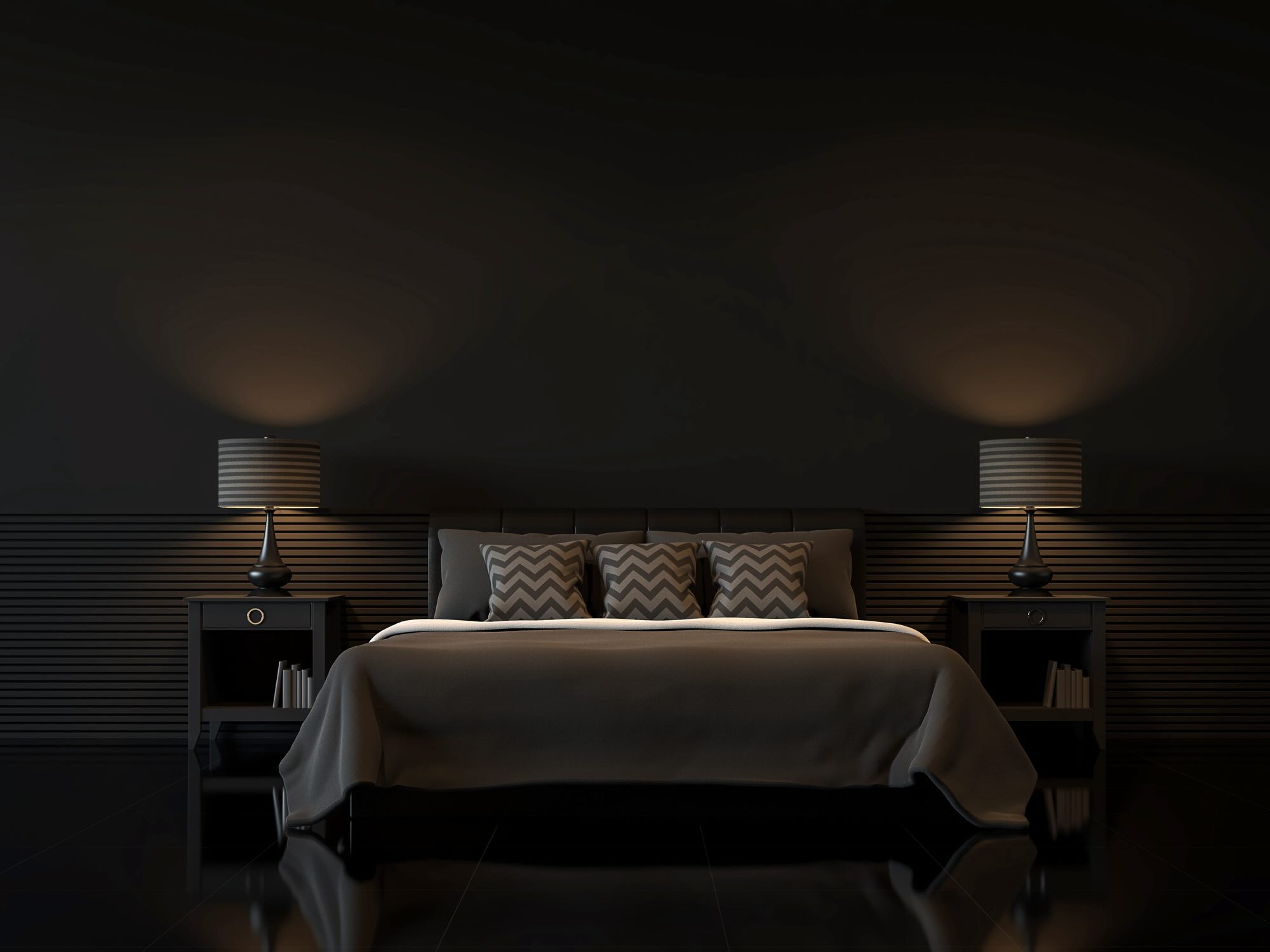
Optimize Your Room for Sleep Hygiene
Sleep hygiene refers to your sleep routine and the physical state of your bedroom. Discover the simple steps you can take to improve your bedroom environment and boost both the quality and quantity of your sleep.
Learn MoreHow to Choose a Humidifier
- Room Size: Match the humidifier's capacity to the size of your space for optimal efficiency.
- Mist Type Preference: Consider cool mist for year-round use, warm mist for soothing coughs and congestion, and ultrasonic models for quiet operation.
- Maintenance Considerations: Choose easy-to-clean models with readily available replacement filters or wicks to prevent bacterial growth.
- Features: Look for features like automatic shutoff, adjustable humidity levels, timers, and even smart home integration for enhanced convenience.
- Noise Level: Prioritize quiet operation, especially for bedrooms. Opt for ultrasonic models if sleep is a priority.
Different Types of Humidifiers
- Ultrasonic Humidifiers (cool mist): These quietly release cool mist using high-frequency vibrations, ideal for bedrooms and smaller spaces.
- Evaporative Humidifiers (cool mist): Utilize a wicking filter to draw water into the air stream, offering efficient humidification for moderate to large rooms.
- Steam Vaporizers (warm mist): Boil water to create warm mist, effective for soothing coughs and congestion but can use more energy and pose burn risks if not handled carefully.
Who Might Benefit from a Humidifier
- Dry Air Sufferers: Relieve dry skin, headache, dry throat, bloody noses, cracked lips and more.
- Winter Warriors: Combat the drying effects of cold air and forced air heat.
- Health Conditions: Relieve cold and flu, allergies, sinusitis and eczema.
- Sleep Optimizers: Dry air can disrupt sleep and lead to throat and nasal irritation.
Who Would Not Benefit from a Humidifier
All of the following conditions can be a concern if the humidifier can not be properly cleaned and maintained:
- Asthma
- Allergies
- Chronic Obstructive Pulmonary Disease (COPD)
- Immune system disorders
- Lung conditions prone to infection
- History of mold allergies or sensitivities
- Sinus issues
- Sensitive skin conditions

Relevant Research - Humidifiers
The evidence regarding the impact of humidifiers on sleep quality is nuanced. The Environmental Protection Agency (EPA) suggests maintaining indoor air humidity between 30-50% for optimal air quality, which can indirectly affect sleep comfort (EPA). However, a review of literature on low humidity's extended exposure indicates a lack of specific evidence directly linking low indoor air humidity to sleep quality. This overview suggests that while maintaining optimal humidity levels might contribute to overall comfort, its direct impact on sleep quality is not clearly established. Furthermore, the same review points out that high humidity levels can have a negative impact on sleep, as supported by multiple studies (International Journal of Hygiene and Environmental Health). This evidence implies that while humidifiers can create a more comfortable environment, especially in dry conditions, their direct effect on improving sleep quality is not conclusively proven and varies depending on individual conditions and environmental factors.

